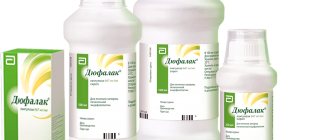In total, the list includes more than a hundred drugs that must be dispensed with a prescription. And also popular among the population:
- antipyretics (aspirin, ibuprofen, paracetamol);
- painkiller "Diclofenac";
- expectorants, alcohol tinctures;
- laxatives;
- vitamins;
- some sex hormones;
- medicines for the treatment of diseases of the cardiovascular system;
- diabetes mellitus;
- bronchial asthma;
- as well as all ointments used in dermatology.
REASON #1
People prescribe antibiotics for themselves, and women often also prescribe hormonal drugs. Many people like to use the Internet, and there you can easily find information on how to treat any disease using a link. All this is fraught.
When you go to see a doctor, he will examine you. You take certain tests, undergo certain studies. And when prescribing treatment for you, the doctor weighs all the pros and cons: are there any indications, are there any contraindications, is this drug combined with other medications that you take.
Contraindications
Contraindications for parenteral administration and oral administration of Ketorol:
- hypersensitivity to the components of the solution/tablets;
- complete or partial combination of clinical manifestations of aspirin-induced bronchial asthma (NSAID intolerance, asthma attacks, polypous rhinosinusitis );
- the presence of erosions and ulcerative defects on the mucous membrane of the upper gastrointestinal tract;
- bleeding in the active phase (gastrointestinal, cerebrovascular or other);
- worsened inflammatory bowel disease;
- hemophilia and other pathologies of the hemostatic system;
- end stage of heart failure (decompensated heart failure);
- functional disorders or active liver disease;
- confirmed hyperkalemia ;
- postoperative period after CABG;
- renal failure , in which the creatinine does not exceed 30 ml/min, progressive kidney pathologies ;
- pregnancy , childbirth, lactation ;
- age up to 16 years.
Relative contraindications:
- congestive heart failure ;
- bronchial asthma (BA);
- IHD;
- hypersensitivity to NSAIDs;
- pathological dys- or hyperlipidemia ;
- cerebrovascular pathologies;
- arterial hypertension;
- kidney damage, in which the creatinine is below 60 ml/min;
- sepsis;
- cholestasis;
- edema syndrome;
- diabetes;
- SLE;
- chronic obliterating diseases of the arteries of the lower extremities;
- treatment with other NSAIDs, anticoagulants , antiplatelet agents , SSRIs, oral corticosteroids;
- history of ulcerative lesions of the digestive canal;
- smoking;
- old age (over 65 years);
- alcohol abuse;
- severe somatic diseases.
External use of Ketorol is contraindicated in case of hypersensitivity to any of the components of the gel, aspirin asthma , eczema , weeping dermatitis , after the 27th week of pregnancy and during lactation . The gel is not intended for the treatment of open wounds and infected abrasions. The drug is prescribed to adolescents from the age of sixteen.
Ketorol gel should be used with caution in case of hepatic porphyria (at the stage of exacerbation of the disease), severe liver/renal failure , CHF, asthma, in pregnant women (in the 1st and 2nd trimesters) and in the elderly.
REASON #2
Many of our fellow citizens are being treated, so to speak, out of inertia. That is, they take medications that the doctor prescribed for them long ago. And they think that since it helped the first time, it will continue to do so. This doesn't happen. When a doctor prescribes a drug, he takes into account not only the disease, but also the condition of the patient’s body. And it affects the disease both with medicine and with the prescription of dietary nutrition, regimen, and physical therapy. Obviously, in a few years the person will be in a completely different state. In addition, there are drugs that the body gets used to over a long time, and they become ineffective.
Prolonged and uncontrolled use of drugs often causes drug intolerance or intoxication. Self-medication leads to “erasing” the symptoms of the disease and turning it into a chronic disease, which is dangerous to health.
It is important to understand that antibiotics have certain indications. These are diseases caused specifically by bacteria. And, for example, colds often begin with a viral infection. Antibiotics have no effect on viruses at all, and are sometimes contraindicated. They are prescribed only in case of complications of a viral infection. If you regularly do not maintain the course of treatment (take tablets not for 7-10 days, but for 3 days), then resistance of microorganisms develops. For example, if the wrong number of chloramphenicol or ampicillin tablets is taken, then resistance develops to the entire ampicillin group.
In the 21st century, drug resistance of microorganisms to antibiotics has become alarming. In 2014, at the international economic forum in Davos, the results of a study were presented, according to which, at the current rate of growth of antimicrobial resistance (AMR), by 2050, 10 million people will die annually from infections caused by resistant microorganisms, which will exceed the number of victims of cancer - 8.2 million people per year.
Yes, getting prescriptions is not always convenient, unusual, and takes time. But we must understand: uncontrolled use of medications does more harm than good.
Ketorol®
The frequency of side effects is classified depending on the frequency of occurrence: often - (1-10%), sometimes (0.1-1%), rarely (0.01-0.1%), very rarely (less than 0.01% ), including individual messages.
From the digestive system: often (especially in elderly patients over 65 years of age with a history of erosive and ulcerative lesions of the gastrointestinal tract) - gastralgia, diarrhea; less often - stomatitis, flatulence, constipation, vomiting, feeling of fullness in the stomach; rarely - nausea, erosive and ulcerative lesions of the gastrointestinal tract (including with perforation and/or bleeding - abdominal pain, spasm or burning in the epigastric region, melena, vomiting like “coffee grounds”, nausea, heartburn and others), cholestatic jaundice, hepatitis, hepatomegaly, acute pancreatitis.
From the urinary system: rarely - acute renal failure, lower back pain with or without hematuria and/or azotemia, hemolytic-uremic syndrome (hemolytic anemia, renal failure, thrombocytopenia, purpura), frequent urination, increased or decreased urine volume, nephritis, edema of renal origin.
From the senses: rarely - hearing loss, ringing in the ears, visual impairment (including blurred visual perception).
From the respiratory system: rarely - bronchospasm, shortness of breath, rhinitis, laryngeal edema.
From the central nervous system: often - headache, dizziness, drowsiness, rarely - aseptic meningitis (fever, severe headache, convulsions, stiffness of the neck and/or back muscles), hyperactivity (mood changes, anxiety), hallucinations, depression, psychosis .
From the cardiovascular system: less often - increased blood pressure, rarely - pulmonary edema, fainting.
From the hematopoietic organs: rarely - anemia, eosinophilia, leukopenia.
From the hemostasis system: rarely - bleeding from a postoperative wound, nosebleeds, rectal bleeding.
From the skin: less often - skin rash (including maculopapular rash), purpura, rarely - exfoliative dermatitis (fever with or without chills, redness, thickening or peeling of the skin, swelling and/or tenderness of the tonsils), urticaria, Stevens syndrome - Johnson, Lyell's syndrome.
Allergic reactions: rarely - anaphylaxis or anaphylactoid reactions (change in facial skin color, skin rash, urticaria, itching of the skin, tachypnea or dyspnea, swelling of the eyelids, periorbital edema, shortness of breath, difficulty breathing, heaviness in the chest, wheezing).
Other: often - swelling (face, legs, ankles, fingers, feet, weight gain); less often - increased sweating, rarely - swelling of the tongue, fever.
How much do Ketorol tablets, gel and ampoules cost?
The price of Ketorol in tablets in Ukrainian pharmacies is 29-37 UAH. Injections can be bought for 98-105 UAH. The price of Ketorol gel is 55-62 UAH.
In Russia, the average price of Ketorol in tablets is 45 rubles, the price of Ketorol in ampoules is 145 rubles, the cost of ointment (gel) is 215 rubles.
- Online pharmacies in RussiaRussia
- Online pharmacies in UkraineUkraine
- Online pharmacies in KazakhstanKazakhstan
ZdravCity
- Ketorolac tab.
p.p.o. 10 mg 20 pcs JSC Tatkhimfarmpreparaty 34 rub. order - Ketorolac solution for intravenous and intramuscular administration. 30mg/ml apm. 1ml 10 pcs. Biokhimik JSC
68 RUR order
- Ketorolac solution for intravenous and intramuscular administration. 30mg/ml amp. 1ml 10 pcs. Ozone LLC
79 RUR order
- Ketorolac tab. p/o captivity. 0.01g 28pcs JSC PFK Renewal
71 RUR order
- Ketorol solution for intravenous and intramuscular administration. 30mg/ml 1ml 10 pcs.Dr. Reddy's lab.
134 RUR order
Pharmacy Dialogue
- Ketorolac (amp. 30 mg/ml 1 ml No. 10) Sintez (Kurgan) OJSC
84 rub. order
- Ketorol Express (tablet dispensed in half the mouth 10 mg No. 20) Dr. Reddy's Laboratories Ltd.
66 RUR order
- Ketorolac (amp. 30 mg/ml 1 ml 2x5 No. 10) Ellara LLC
51 RUR order
- Ketorolac (amp. 30 mg/ml 1 ml No. 10) Welfarm LLC
55 rub. order
- Ketorolac (tab.p.pl/vol. 10mg No. 28)Update of PFC CJSC
72 RUR order
show more
Pharmacy24
- Ketorol 2% 30 g gel Dr. Reddy's Laboratories Ltd., India
72 UAH.order - Ketorol 30 mg/1 ml N10 solution Dr. Reddy's Laboratories Ltd., India
175 UAH order
- Ketorol 10 mg No. 20 tablets Dr. Reddy's Laboratories Ltd., India
75 UAH order
PaniPharmacy
- Ketorol tablets Ketorol film-coated tablets 10 mg No. 20 India, Dr. Reddy's
93 UAH order
- KETOROLAC ampoule Ketorolac r/r d/in. 3% 1ml. No. 10 Ukraine, Health LLC
99 UAH order
- Ketorol ampoule Ketorol solution d/in. 30mg amp. 1ml No. 10 India, Dr. Reddy's
152 UAH order
- KETOROLAC tablets Ketorolac tablets. 10mg No. 10 Ukraine, Health LLC
18 UAH order
- Ketorol gel Ketorol gel 2% 30g India, Dr. Reddy's
85 UAH order
show more
Is it possible to give Ketorol to children?
The annotation states that all dosage forms of the drug are intended for the treatment of patients over 16 years of age (according to Wikipedia, age under 16 years of age is a relative contraindication).
The reason for this restriction is that the use of ketorolac in children can cause visual and hearing impairment, depression , nephritis , pulmonary edema , allergic reactions and other severe complications.
Therefore, it is better to give the child safer means to relieve pain - for example, paracetamol or ibuprofen .









